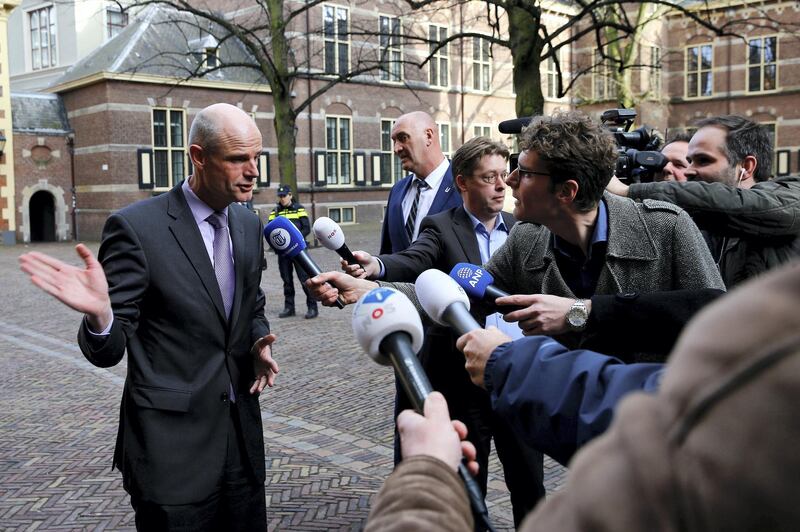On Monday night, the Netherlands recalled its ambassador to Iran, indicating that European nations are finally waking up to Iran's nefarious behaviour. Three years after the Dutch authorities unearthed Iranian involvement in the assassination of dissidents on its soil, Tehran has yet to engage in a serious investigation to resolve the issue. Just like the Danes, who recalled their ambassador last October, the Dutch have had enough.
It is dispiriting, if unsurprising, that Iran has continued to overstep its boundaries in Europe, even as the EU battles to save the flawed Iran nuclear deal – which the US withdrew from in 2018. But now, given the strong indications that Iranian intelligence planned the killings of dissidents in France, Denmark, the Netherlands and beyond, Europe is losing patience. This Dutch action follows the imposition of EU sanctions on Iran's intelligence services in January.
In reality, Iran's destabilising influence has been decried for decades by its Arab neighbours and their allies, long before it reached European capitals. Tehran's meddling in Iraq and Syria has reinforced sectarian divides, exacerbated conflict and further undermined fragile states. Iran-backed Houthi rebels in Yemen are waging a war that has left half of the population on the brink of starvation and its proxy Hezbollah – whose military wing is recognised as a terrorist organisation by the EU – now controls three Lebanese ministries.
Last week, the Organisation of Islamic Co-operation summit reminded us that Iran remains a threat to its neighbours. During his closing speech, UAE Minister of Foreign Affairs and International Cooperation Sheikh Abdullah bin Zayed proposed “a peaceful solution which ends the Iranian occupation of the three Emirati islands”. The Lesser and Greater Tunbs, as well as the island of Abu Musa, have been occupied by Iran since 1971 and this injustice remains unresolved. The Iranian representative’s response to this measured request was boorish, proving once again that Tehran is not interested in peaceful dialogue. The world must wake up to Iran’s malign behaviour. The Netherlands has, at last, taken much-needed diplomatic action and others should follow suit.





